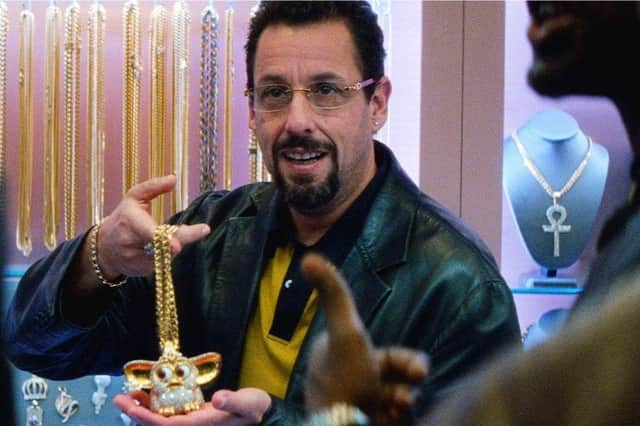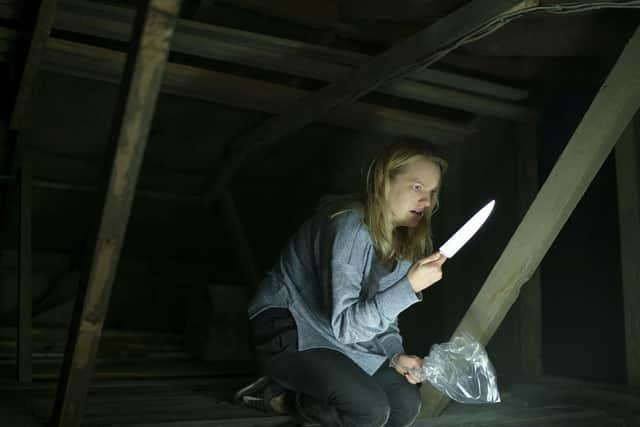Arts review of 2020: Alistair Harkness on the year in film


Back in October 2019 I wrote a feature for this paper examining whether streaming services were saving cinema or destroying it. The occasion was the imminent release of Martin Scorsese Netflix-funded gangster opus The Irishman, a dream project with a dream cast that no studio would touch. For directors uninterested in TV or franchises, the deep-pocketed Netflix, Amazon and new kid on the block AppleTV+ seemed like a lifeline, offering visionary filmmakers the budgets, creative freedom and platforms to get their movies made and out into the world. The multiplex chains saw it differently. The shrinking window between a film’s theatrical and streaming release was a direct threat to a business that depended on months of hype and a steady stream of spectacle-laden blockbusters to get people out of their homes on that all important opening weekend.
Back then – by which I mean last year – the debate was also rather quaintly being framed as a war of words between Scorsese and oversensitive Marvel fans upset that he didn’t consider superhero movies sufficiently cinematic. Yet Scorsese’s largely ignored comment that streaming represented a “bigger revolution than sound” showed that he understood better than most the rapidly shifting parameters of an industry that has become too dependent on a blockbuster-dominated model that can, at times, feel like an all-consuming monoculture. In short, Scorsese wasn’t the dinosaur, Marvel was – and all it took was Covid-19 hitting like a comet to wipe it out.
Advertisement
Hide AdOkay, that’s an exaggeration. Most of 2020’s suddenly absent blockbusters are currently stacked up like planes ready to land sometime next year. But 14 months on from writing that feature, it’s clear that without streaming and on-demand services the cinematic landscape would have been a far bleaker place this year. Of course we’d still have had Parasite’s historic Oscar-win and Scottish screenwriter Krysty Wilson-Cairns scoring an Academy Award nomination right out of the gate for 1917. We’d still have had the barmy brilliance of Robert Eggers’ The Lighthouse, the rush of Céline Sciamma’s arthouse wonder Portrait of a Lady on Fire and the thrill of Leigh Whannel’s Elisabeth Moss-starring feminist update of The Invisible Man. And we’d definitely still have had my movie of the year, Uncut Gems, Josh and Bennie Safdie's Adam Sandler-starring New York thriller about a diamond merchant (Sandler) on a chaotic downward spiral as he tries to pull off the deal of his life. Arriving in January it now feels like a harbinger of what was to come: not only was watching it like having a panic attack (an emotional state akin to living through 2020), as a Netflix movie that launched almost simultaneously in cinemas and on the streaming service, it anticipated how most of the year’s best films would come our way.


And make no mistake, even after cinemas shuttered in March, opening only intermittently and sporadically in the nine months that followed, there has been plenty of good cinema to enjoy. Distributors that didn’t already do simultaneous direct-to-consumer releases quickly pivoted to video-on-demand (which is how we got Judd Apatow’s likeable new comedy The King of Staten Island and the surprisingly good Ben Affleck sports drama Finding the Way Back). The big streaming services, meanwhile, upped the ante with major new releases from big name filmmakers.
This is a year that saw bold, brilliant and sometimes just plain entertaining new work from Charlie Kaufman (the delirious I’m Thinking of Ending Things), Sofia Coppola (the Apple TV+ backed On the Rocks), David Fincher (Mank) and Spike Lee, whose politically charged treatise on the Black American experience in Vietnam, Da Five Bloods, featured dynamite performances from Delroy Lindo and the late Chadwick Boseman and was about as timely as a film can be, debuting globally on Netflix in the midst of the Black Lives Matter protests that tore Trump’s America apart.
In the UK, Steve McQueen’s BBC-backed ‘Small Axe’ quintet, led by Mangrove, offered similarly searing insights into Britain’s own complicated history of racism. And with a release schedule suddenly shorn of oxygen-sucking awards bait and gargantuan franchises, there was plenty of space to appreciate — either at home or on limited release — the likes of Alice Winocour’s Proxima, Claire Oakley’s Make Up, Josephine Decker’s superb Shirley, Eliza Hittman’s abortion drama Never, Rarely, Sometimes, Always, Kitty Green’s Weinstein-riffing #MeToo drama The Assistant, Karen Maine’s sly comedy Yes, God Yes, Hirokazu Koreeda’s wonderfully funny The Truth, and the outré genre experimentations of Brandon Cronenberg’s Possessor and Rose Glass’s stunning debut Saint Maud.
Of course no movie was more anticipated or scrutinised than Tenet. After Disney’s controversial decision to release Mulan on its own Disney+ streaming service (coincidentally launched in the UK the week we went into lockdown), all eyes turned to Christopher Nolan’s sci-fi thriller as the saviour of the big screen experience. It’s a mantle Nolan has been carrying for years; it’s just too bad this particular film was his least entertaining. And yet, the physical thrill of being back in a cinema was hard to deny, even if Nolan’s insistence on a dialogue-muffling sound-mix eventually pulled me out of the movie. What is clear is that however the next year or two shakes out, great cinema will still be with us. How we experience it might be another matter.


A message from the Editor:
Thank you for reading this story on our website. While I have your attention, I also have an important request to make of you.
Advertisement
Hide AdThe dramatic events of 2020 are having a major impact on many of our advertisers - and consequently the revenue we receive. We are now more reliant than ever on you taking out a digital subscription to support our journalism.
To subscribe to scotsman.com and enjoy unlimited access to Scottish news and information online and on our app, visit https://www.scotsman.com/subscriptions
Joy Yates, Editorial Director